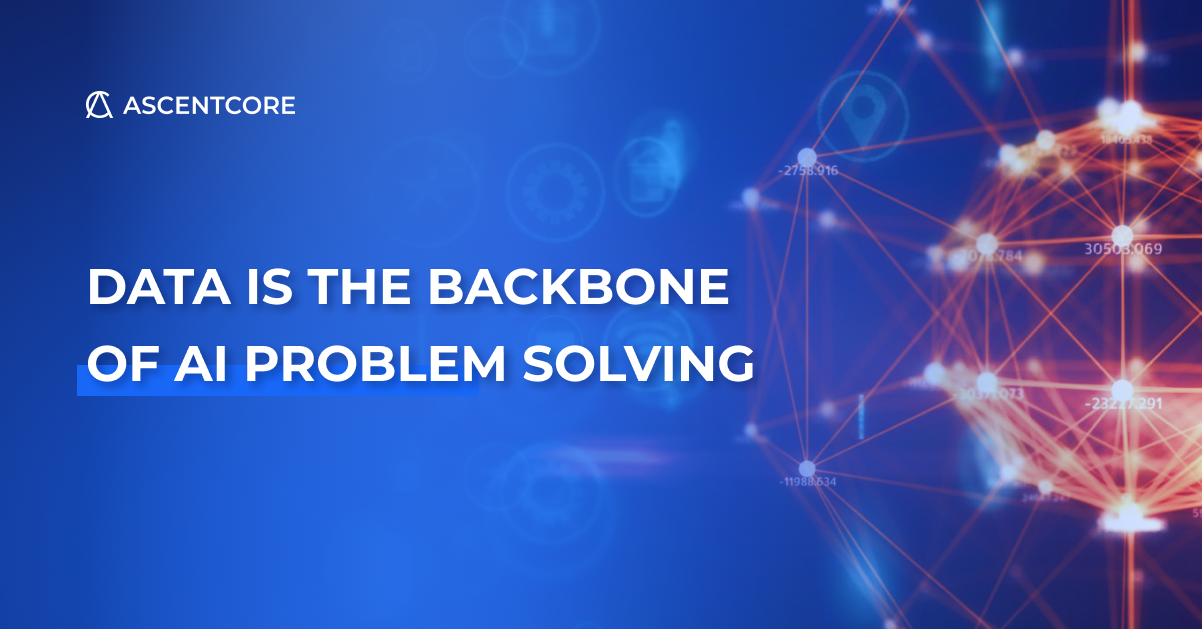There is no doubt that AI is unlocking new business opportunities every day and that it’s transforming virtually every industry as we know it. However, it’s important to remember that today’s AI technology is not necessarily meant to be solutions to today’s problems. Unto itself, AI technology is not a magical solution to every problem a business faces nor is it always the right choice for addressing challenges.
But you know what can help? Data.
Behind every smart decision is smart data
In the last 20 years, data has become the most precious resource a business can own. It allows businesses to make better decisions, informs and influences elections, and can help us predict, avoid, or prepare for approaching crises. Since all AI algorithms rely on a large amount of data to identify patterns and make predictions, businesses must start with good data to make AI useful and effective. Usually, the most reliable data that a team can rely on is data collected by internal tools and platforms.
So if you’re starting at a deficit when it comes to your data, or using bad data, no AI is going to solve your business’s problems. That’s because AI on its own can’t identify and solve problems. It needs data to help it learn what it’s supposed to be solving for, and that means your business needs data-backed decision-making and solutions. It’s also worth mentioning that the best data science team alone won’t solve your problems either if they don’t understand the business’s goals, strategies, and challenges.
Quality in, quality out
To be able to leverage quality data to find solutions (such as AI technology), a business must first think of how to collect valuable and quality information from its customers and stakeholders. IT products, for example, can easily collect this type of information with a working terminal by running or accessing one of the company’s products and using a unique identifier (such as an IP address) attached to a corresponding behavior or action.
Other types of businesses can generate quality data through different types of methods. For example, if you run a retail store, you can offer a membership or loyalty card that incentivizes customers to use it. From there, you can access their preferences, behavior, and a host of other useful information from one swipe of the card. Armed with meaningful and quality data, you can have a better picture of your strengths and challenges and how (or if) an AI solution can help.
You can take a look at just about any big tech company to gain a deeper understanding of the importance of data. Most of them invest heavily in free products that are used as data generators. Services such as Google Maps allow you to find your way around a city and avoid traffic jams. And with this advantage, Google gathers data about where you live and work, where you shop, and your travel behaviors. This information allows them to create your behavioral pattern and place you in a precise segment to offer you paid services or offers when you need them. For example, you might see more ads about vacations in the months that you are more likely to travel, or you may receive ads for gear based on the stores that you’ve visited while using maps.
The snowball effect
Once you’ve found a way to generate quality data, it becomes easier to build on that data. Going back to the big tech example, data that they gather can be used to predict future decisions of individuals. With each piece of information that is shared and attached to a unique identifier, better and more precise profiles can be created.
While Google Home or Alexa can collect private conversations between people in the room, which may feel a little “Big Brother” to some, the truth is there is too much information to store and process for the companies to make any use of it. But they can make use of on-device deployed AI to identify keywords such as brand names to push out tailored ads later on.
Better solutions require better data
AI really is an amazing evolution in technology, and we’ve only reached the tip of the iceberg when it comes to its potential. As we look ahead, AI will be able to solve problems that don’t even exist today, and do so faster and smarter. But no AI can solve problems without data. Investing in gathering and analyzing quality data is critical to smarter decision-making and quicker identification of roadblocks and challenges to achieving your business’s goals.
At AscentCore, we provide end-to-end product development services, including specialized expertise, in a wide cross-section of industries and solutions. With a focus on AI and ML, we deliver transformational results for our clients by leveraging the latest technology and empowering companies to disrupt, transform, accelerate, and scale. Find out more about us.














